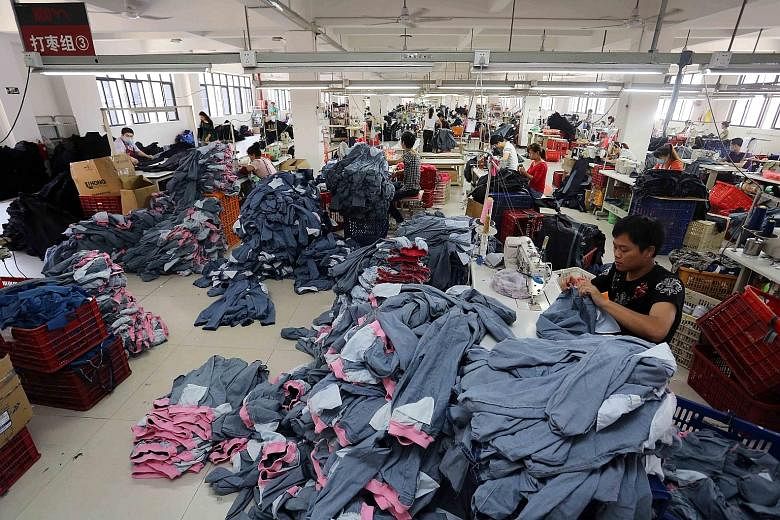Local investors are expected to watch for key economic data from China and Singapore this week and decide whether oil prices can maintain their upward momentum on a weaker US dollar as Russia continues its military operations in Syria.
The benchmark Straits Times Index (STI) rallied 7.4 per cent last week, closing at 2,998.5 on Friday, following signals from minutes of the latest Federal Reserve policy meeting last month that an interest rate hike isn't likely this year.
The stock market also rallied on positive sentiment over the conclusion of a historic trade accord and a rise in oil prices.
Singapore shares may take a breather this week on the heels of such a strong performance, analysts say.
"The STI is likely to trade sideways this week, unless Wall Street or China rallies convincingly," remisier Alvin Yong said. "If it crosses 3,000, the next resistance is 3,030. If it breaks the 2,965 key support, then the next level is 2,945.
"If oil prices continue to rally on Middle-East tensions, that should be positive for oil-related stocks, including Keppel Corp and SembMarine, which could support the STI."
China's exports, imports and trade balance data for September, to be released tomorrow, will likely give investors clues on the strength of the Chinese economy. "The wild card this week is whether the Chinese government will announce more stimulus measures to support the economy," Mr Yong said.
Here in Singapore, the central bank's closely watched semi-annual monetary policy decision and advance estimates of Singapore's third-quarter economic growth will be released on Wednesday.
Analysts are expecting the Monetary Authority of Singapore (MAS) to ease monetary policy - in effect weakening the Singapore dollar - due to the rising risk of a technical recession and downside risks to the inflation outlook. Financial conditions have tightened in recent months, and this is pointing towards further slowing in growth.
"Since 1999, there have been only three occasions when the MAS re-centred the policy band lower. The common thread during those periods were that the S$NEER was trading close to or at the lower bound, policy was at neutral, and there was some form of negative external shock," ANZ senior FX strategist Khoon Goh said.
He was referring to the Singapore dollar nominal effective exchange rate, which takes into account the value of currencies of Singapore's major trading partners.
Current concerns around emerging markets and volatility ahead of the possible interest rate increase by year end could count as a negative external shock, he said. "We believe a re-centring of the policy band towards the prevailing S$NEER level is needed to take pressure off domestic interest rates."
However, it is also possible that MAS could leave the policy unchanged, preferring to wait until after the US Federal Reserve moves on rates before deciding, he added.
"While there will likely be a knee- jerk reaction making Singdollar stronger, we doubt such an effect will last," he said. "We maintain our year-end US dollar/Singdollar target of 1.45. Should the MAS deliver a re-centring as we expect, there is a chance that USD/SGD could reach 1.45 by the end of this month."
Singapore's September non-oil domestic exports data, which is scheduled to be released on Friday, is expected to continue to remain in negative territory, in tandem with the global economic slowdown.
Several real estate investment trusts (Reits), including SPH Reit, Soilbuild Business Space Reit and Keppel DC Reit, are releasing their results this week.
"With a slowing economy, we believe operational headwinds will persist across most sub-sectors in the upcoming results, but we expect retail Reits to be the most resilient," DBS analysts Derek Tan and Mervin Song said.
"We expect most weakness in the hospitality Reits come the third quarter despite it being a seasonally strong quarter. We believe that hospitality Reits with regional exposure will likely perform better as the outlook for Singapore remains weak.
"For industrial Reits, we believe that performance will remain fairly flattish, with market rents expected to further moderate," they said.
"Office Reits will continue to face increasing headwinds of weak demand in CBD, while occupancy risks might emerge if more firms (especially the telecoms, media sector) look to relocate to suburban locations and business parks to save costs. While we see value in office Reits, near-term stock performance is likely to be range-bound, given that rents remain on a downward trend."


